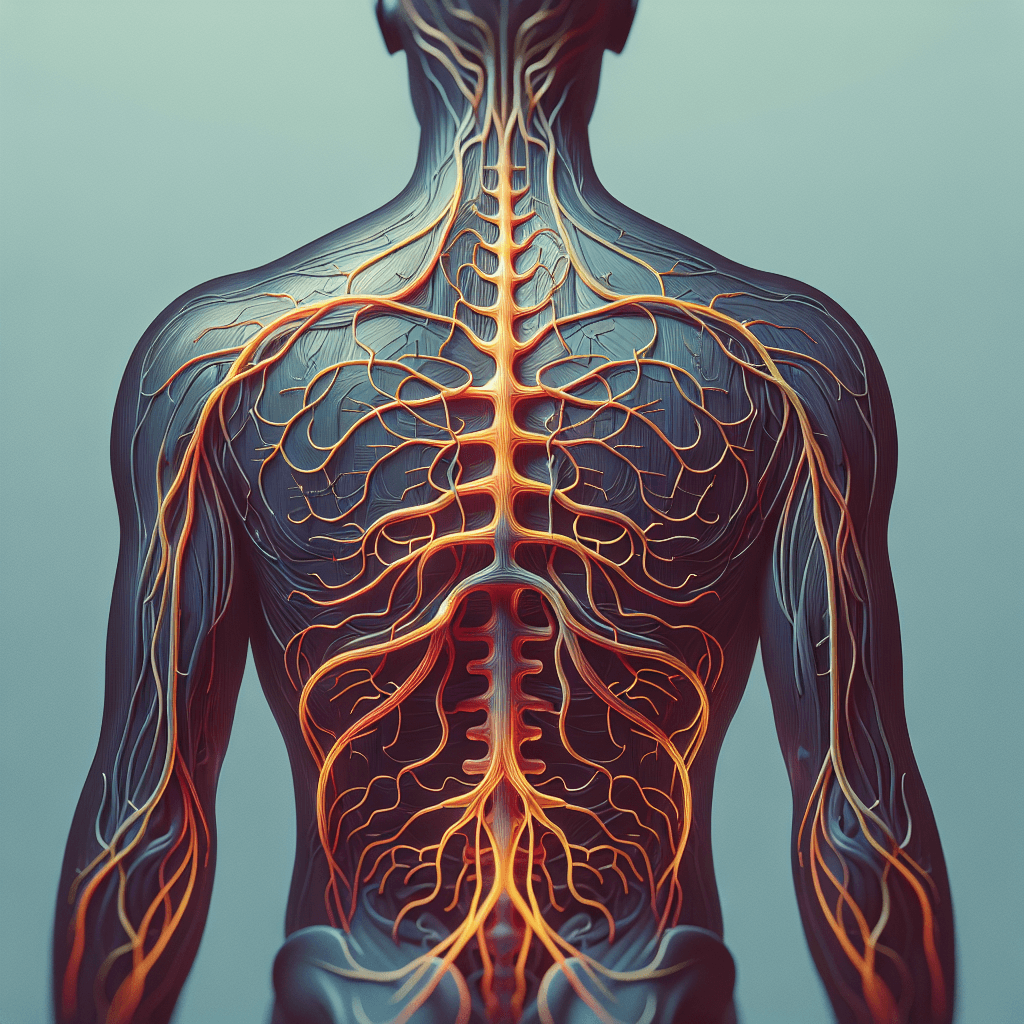Introduction: Reveal Your Energy Boost: Understanding the Circadian Cycle
Imagine yourself at your full energy potential, from dawn to dusk, simply by syncing your body clock. The circadian cycle, this natural wonder, influences our sleep, our mood, and, most importantly, our daily energy . But how do you honor it to get the most out of it? In this article, we’ll explain how to use the circadian cycle to optimize your daily energy naturally. We’ll explore the importance of the circadian cycle, its effects on your body, how to get the most out of it, and practical tips for syncing your daily habits.
Part 1: Understanding the Circadian Cycle
The Foundations of the Circadian Cycle
What is the Circadian Cycle?
The circadian rhythm is an internal biological process that regulates the sleep-wake cycle over a 24-hour period. This concept originates from the natural rhythms observed in living organisms, including humans. It is essential for biological regulation , controlling various bodily functions such as body temperature, hormone levels, and metabolism. According to the National Institutes of Health (NIH) , circadian rhythms also influence aspects of our behavior, mental and physical well-being [NIH, 2021].
To Remember:
- The circadian cycle regulates the sleep-wake cycle.
- It influences body temperature and hormone levels.
- Essential for mental and physical well-being.
Phases of the Circadian Cycle
The circadian cycle is divided into several crucial phases, including morning, afternoon, evening, and night. Each phase has its own importance for the body. For example, the morning is often marked by a rise in cortisol , promoting wakefulness, while the night is the time of melatonin, promoting sleep. Respecting the phases of the circadian cycle helps maintain optimal energy throughout the day.
To Remember:
- Morning promotes wakefulness through an increase in cortisol.
- Night time promotes sleep with melatonin.
- Each phase maintains optimal energy.
Why is the Circadian Cycle Crucial for Your Energy?
Circadian cycle directly impacts your energy and productivity. Circadian disruption , often caused by exposure to artificial light or irregular schedules, can lead to low energy and decreased productivity. Studies show that synchronizing your activities with your circadian cycle can improve not only mental clarity but also overall health [Journal of Clinical Sleep Medicine, 2022].
To Remember:
- The circadian cycle impacts energy and productivity.
- Disruption reduces energy and productivity.
- Synchronizing with the cycle improves overall health.
Part 2: Circadian Cycle Influencers
Factors That Modulate Your Biological Clock
Light and Its Impact on Your Internal Clock
Natural light is the main regulator of our biological clock. It helps align our circadian cycle with the Earth's day-night cycle. On the other hand, exposure to artificial light , especially blue light from screens, disrupts this clock, affecting our sleep [Journal of Clinical Sleep Medicine, 2022]. It is crucial to prioritize exposure to sunlight during the day and reduce artificial light in the evening.
To Remember:
- Natural light regulates the biological clock.
- Artificial light disrupts sleep.
- Favor the sun and reduce screen time in the evening.
Food and Circadian Cycle
Meal timing plays a significant role in regulating the circadian cycle. Eating at regular times can stabilize your energy and improve your sleep. Experts recommend eating your largest meal of the day in the morning or at noon to respect our natural biological rhythm [Nutrition and Metabolism, 2023].
To Remember:
- Meal timing influences the circadian cycle.
- Eating at regular times stabilizes energy.
- Large meals should be eaten in the morning or at noon.
The Role of Physical Activity
Physical activity has many benefits for sleep and energy. Exercising during daylight hours can strengthen your circadian cycle, while intense exercise close to bedtime can disrupt it. It is recommended to schedule your exercise sessions in line with your circadian cycle to maximize the benefits.
To Remember:
- Physical activity improves sleep.
- Exercising during the day reinforces the circadian cycle.
- Avoid strenuous exercise before bedtime.
Part 3: Optimizing Your Circadian Cycle
Strategies for Maximized Energy Through the Circadian Cycle
Create a Sleep Routine that Works with Your Cycle
For restful sleep, it's essential to create a routine by going to bed and waking up at the same time each day. This helps keep your circadian rhythm regular. Tips like avoiding caffeine in the afternoon and practicing relaxing rituals can make it easier to fall asleep.
To Remember:
- Create a regular sleep routine.
- Avoid caffeine to make it easier to fall asleep.
- Relaxing rituals promote sleep.
Adapting Your Environment to Promote a Healthy Cycle
Optimizing your sleep environment is crucial. Make sure your bedroom is dark, quiet, and cool. Electronics that emit blue light disrupt the circadian cycle. Consider limiting technology use before bed.
To Remember:
- Dark and quiet environment promotes sleep.
- Limit technology before bed.
- Cool temperature for better sleep.
Stress Management Techniques and Circadian Cycle
Stress has a significant impact on the circadian cycle. Techniques like meditation and mindfulness can help reduce stress and maintain a regular cycle. These practices promote a state of calm necessary for good sleep.
To Remember:
- Stress disrupts the circadian cycle.
- Meditation reduces stress.
- Mindfulness helps maintain a regular cycle.
Part 4: The Myths and Realities of the Circadian Cycle
Debunking Common Misconceptions About the Circadian Cycle
Myth: Good Sleep Is Enough for Circadian Health
Good sleep is important but not sufficient for optimal circadian health . Equally crucial is the complete synchronization of your cycle with your daily activities. This includes light, food, and physical activity.
To Remember:
- Good sleep alone is not enough.
- Cycle timing is crucial.
- Light, diet and activity influence circadian health.
Myth: The Circadian Cycle Is the Same for Everyone
Every individual has a unique chronotype , which determines their natural energy peaks. Knowing your chronotype helps you structure your activities around your cycle. Chronotype studies reveal that understanding these variations can optimize productivity [Journal of Human Chronotypes, 2023].
To Remember:
- Chronotypes vary from person to person.
- Knowing your chronotype optimizes your cycle.
- Activities should be aligned with chronotype.
Myth: Sleep Deprivation Is Reversible
Contrary to popular belief, sleep deprivation is not easily remedied. The cumulative effects of poor sleep can impact your health in the long term. Getting back to a healthy sleep pattern takes time and consistency.
To Remember:
- Lack of sleep is not easily reversed.
- Cumulative long-term health effects.
- Getting back to a healthy rhythm takes time.
Part 5: Integrating the Circadian Cycle into Your Daily Life
Dynamically Aligning with Your Circadian Cycle
Plan Your Day According to Your Body Clock
Pacing your day according to your body clock improves concentration and rest. Identify the hours when you are most alert for important tasks and reserve low-energy times for more relaxing activities.
To Remember:
- Planning according to the body clock improves productivity.
- Identify alert times for important tasks.
- Use low energy periods to rest.
Resynchronize After a Disruption
After an imbalance , it is crucial to resynchronize your cycle with daily routines. Regular morning and nighttime rituals can help restore a natural rhythm, making it easier to return to a healthy cycle.
To Remember:
- Resynchronize the cycle after a disruption.
- Morning and nighttime rituals help to get back into rhythm.
- Importance of regular routines.
Listen to Your Body
Your body sends signals when it is disrupted. By listening to your needs and adjusting your schedule, you can maintain a healthy circadian balance. Personal adjustment is essential to ensure your habits match your natural cycle.
To Remember:
- Listen for signs of body disturbance.
- Adjust schedule for circadian balance.
- Personal adjustment is essential.
Conclusion: Summary: Take Advantage of the Natural Energy of your Circadian Cycle
By understanding and utilizing your circadian cycle , you can experience increased energy, improved productivity, and overall well-being. By incorporating practices that align your body clock, such as managing your sleep routine and adjusting your environment, you will naturally optimize your energy. Start adjusting your habits today and feel the difference!
FAQ:
-
How does the circadian cycle affect our sleep?
- The circadian cycle regulates when we feel awake and asleep, influencing the quality and duration of sleep.
-
What are the signs of a disrupted circadian cycle?
- Daytime fatigue, difficulty falling asleep, frequent awakenings and mood changes may indicate a disorder.
-
Can you adjust your circadian cycle easily?
- Yes, by gradually changing sleep schedules, controlling light exposure and adopting regular routines.
-
What is the role of melatonin in the circadian cycle?
- Melatonin is a hormone that signals the body that it is time to sleep, regulating the sleep-wake cycle.
-
Does diet influence the circadian cycle?
- Yes, meal timing and food composition can affect your circadian rhythm and energy.
-
How does blue light impact the circadian cycle?
- Blue light, especially in the evening, can disrupt melatonin production and delay sleep.
Take a proactive approach to aligning your lifestyle with your circadian cycle and reap the benefits of optimized daily energy.





